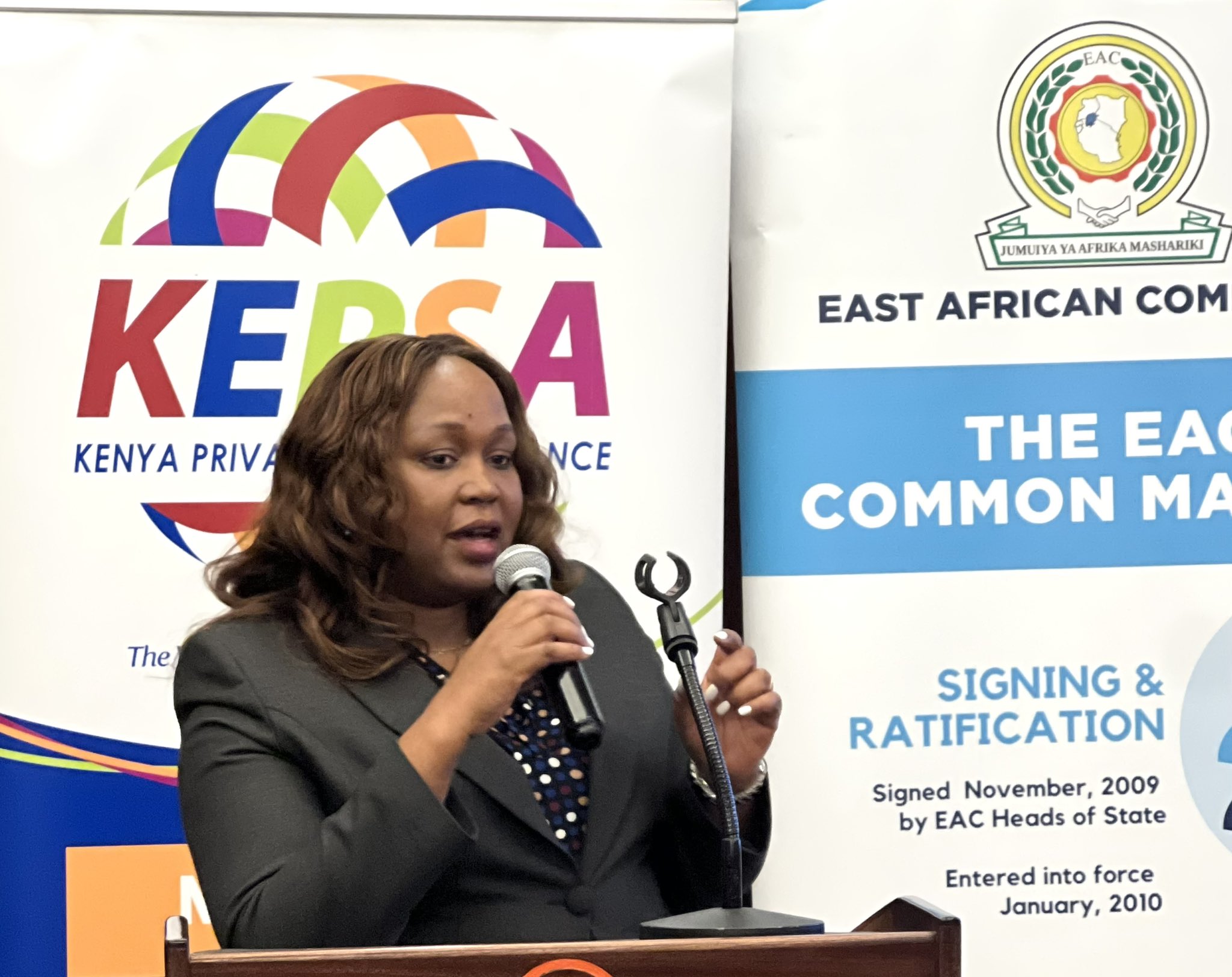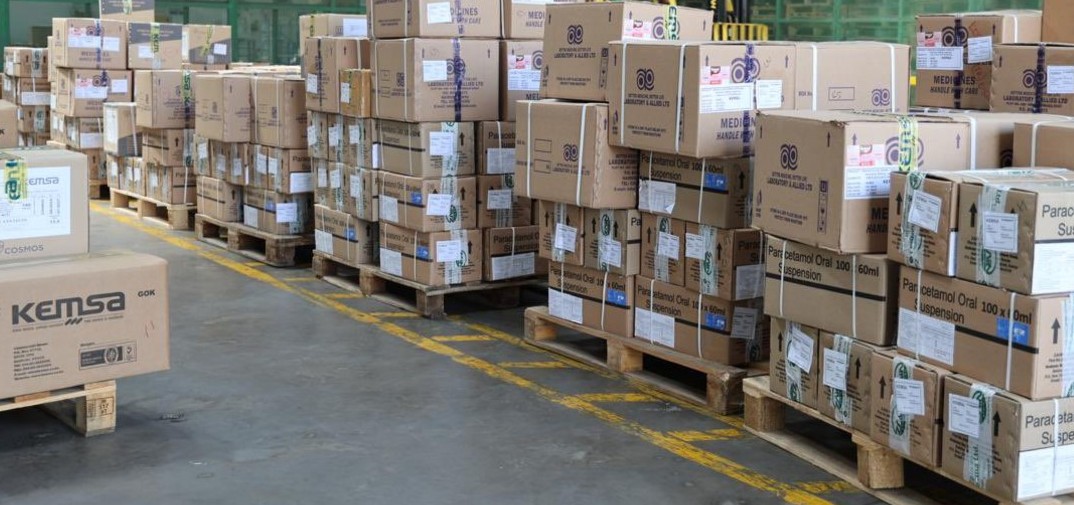Private sector urged to embrace product diversification, maximise EAC market

EAC Secretary General Veronica Nduva, CBS, noted that the regional private sector needs to find a common ground to safeguard national interests that align with promoting regional benefits.
Private sector players in the country have been urged to embrace product diversification, specialisation and value addition in manufacturing to take full advantage of the East African Community (EAC) common market.
This is to address the still-existing bottleneck of protectionism amongst EAC partner states that is occasioning a conflict between the desire to safeguard national interests while at the same time promoting regional benefits.
More To Read
- Wetang'ula warns EAC arrests over travel documents threaten regional integration
- EAC and AGRA rally young entrepreneurs to transform regional food systems
- EAC's Nairobi summit pushed to January amid regional tensions
- Kenya criticises ‘over-judicialisation’ after East African Court of Justice blocks EU trade deal
- East African Court postpones swearing-in of nine Somali legislators to EALA
- Museveni clarifies Indian Ocean comments after Kenya downplayed war talk
Speaking at a roundtable in Nairobi, EAC Secretary General Veronica Nduva, CBS, noted that the regional private sector needs to find a common ground to safeguard national interests that align with promoting regional benefits.
The Kenya Private Sector Alliance (KEPSA), also at the roundtable, highlighted the lack of agreement among East African Community (EAC) countries on revenue collection processes as another existing barrier slowing down trade in the community.
It narrated how the disparities among EAC countries hold back entrepreneurs in the region, particularly exporters and importers from respective jurisdictions who impose different levies on the same products.
Nevertheless, Kepsa also noted the lack of harmonised standards and compliance across the region as another still-existing barrier.
Despite the downturns, the EAC secretary general demonstrated that the intra-EAC trade experienced tremendous growth over the past year.
She noted that the trade value had increased by 14 per cent to $12.2 billion (Sh1.6 trillion), compared to 9.2 per cent at $10.7 billion (Sh1.38 trillion) in 2022.
For continued growth, she thus called on the private sector to invest in sectors that have the potential to drive economic growth, such as manufacturing, agriculture and services, and to promote regional integration, trade and investment to maximise the potential benefit of economic growth.
"The EAC Secretariat has made great strides, but more still needs to be done," she noted.
 EAC staff at a past town hall meeting at the EAC Headquarters in Arusha, Tanzania. (Photo: Veronica Nduva)
EAC staff at a past town hall meeting at the EAC Headquarters in Arusha, Tanzania. (Photo: Veronica Nduva)EAC staff at a past townhall meeting at the EAC Headquarters in Arusha, Tanzania. (Photo: Veronica Nduva)
"For instance, the EAC Customs Union has successfully eliminated tariffs on intra-regional trade since 2005, resulting in a remarkable 60 per cent increase in intra-EAC trade. The introduction of the Non-Tariff Barriers (NTB) reporting platform has also been transformative for trade facilitation within the EAC."
With over 1,000 standards harmonised, intra-EAC trade has been significantly streamlined, ensuring the consistent quality and safety of products and services, she added.
On his part, the Kepsa chair, Dr. Jas Bedi, acknowledged that, as the largest economy in the EAC, Kenya has greatly benefited from regional integration.
He noted that the service sector, particularly travel and other services, has been a key driver of growth, accounting for over two-thirds of total service trade.
However, he reiterated that the EAC still faces industrialisation challenges.
"The region remains under-industrialised due to factors like low electricity access, high costs, poor infrastructure, and protectionist policies," Bedi said.
“Addressing these issues is crucial for boosting competitiveness and reducing trade deficits, and one of the things we propose is the establishment of a regional task force to identify and address these bottlenecks, with input from the private sector."
The stakeholders therefore emphasised robust collaboration among businesses within the region as an essential strategy for growth and competitive advantage in the contemporary business landscape.
Additional recommendations from the stakeholders included aggressive civic education campaigns to inform traders and the public about the rules, tariffs, and processes involved in cross-border trade.
They also highlighted the need to eliminate paper-based processes in favour of fully digital transactions, managed by a centralised EAC platform.
Addressing corruption at border posts, increasing value addition in exports, and differentiating products to enhance competitiveness were further recommendations.
Moreover, they noted that integration efforts should be continuously refined to respond to the dynamic needs of the market and the aspirations of its member states.
Top Stories Today













































